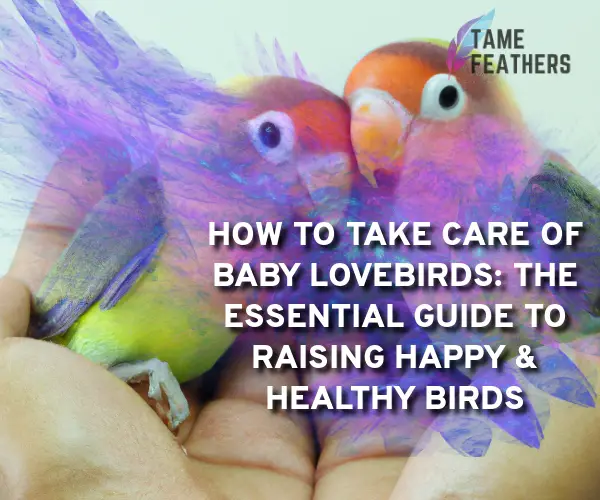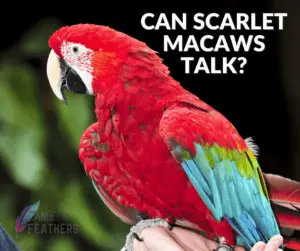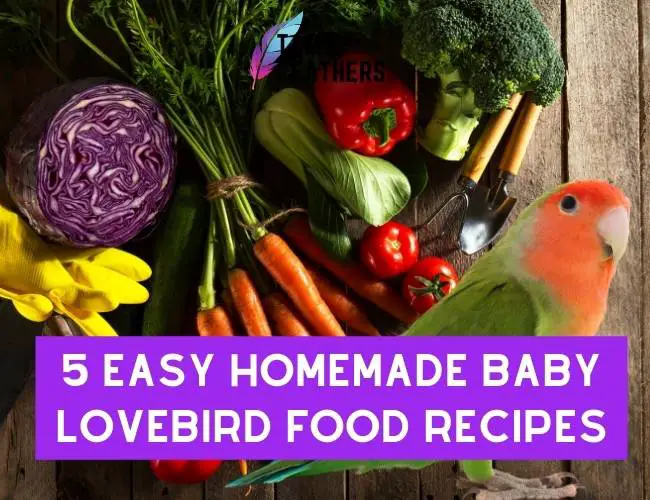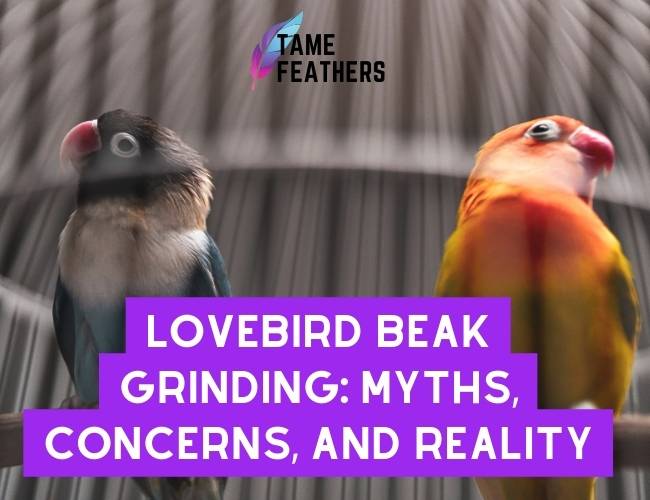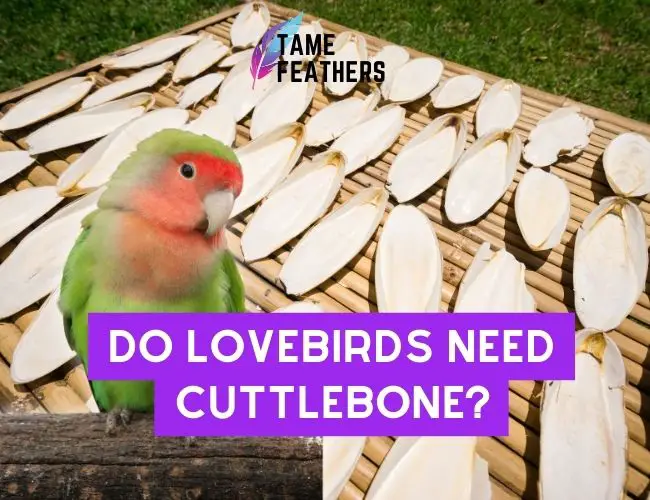Although caring for a lovebird involves perseverance and commitment, it can also be very rewarding.
We’ll provide you all the knowledge you need in this manual on how to care for baby lovebirds so they have long, happy lives.
So let’s get started if you’re prepared to take on the role of a responsible bird parent.
What Do Baby Lovebirds Need For A Comfortable Home?
A comfortable home is essential for an infant lovebird.The cage should be spacious enough to allow your bird to stretch out their wings and move around, but not so large that they feel isolated or overwhelmed.
It should also provide plenty of toys, perches and other interesting items for them to explore.
Look for cages made from durable materials such as metal wire mesh or stainless steel bars, with a solid bottom tray for easy cleaning.
Make sure the door has a secure latch and that any openings are small enough to prevent escape!
When it comes to bedding material, choose something soft and non-toxic such as wood shavings or paper towels – avoid using anything like sandpaper which could cause injury.
Put in some branches or pieces of wood on the floor of the cage so your baby lovebird can climb up and down safely without hurting themselves.
Finally, consider adding some natural nesting material such as dried grasses, pine needles or shredded paper into one corner of the cage – this will help your new feathered friend feel safe while providing adequate insulation during cold weather conditions.
What Should I Feed My Baby Lovebirds?
Good nutrition is essential for all birds – especially young ones! Start by purchasing a high quality formulated diet specifically designed for lovebirds; these products contain optimal levels of vitamins and minerals needed for proper growth.You may also supplement with fresh fruits, vegetables (especially dark leafy greens), cooked eggs/rice/pasta dishes occasionally but don’t overfeed since it can lead to obesity problems later on in life.
For chicks under 4 months old ensure you have access to a commercial chick starter mix containing at least 20% protein along with finely ground seeds (such as millet).
This type of food should be available 24 hours per day until they reach 6 weeks old when regular adult diets become necessary.
Trending
Introducing New Foods To Your Baby Lovebird
Introducing new foods into your baby lovebird’s diet needs careful consideration; sudden changes could shock their system resulting in health complications down the line.If you decide you would like introduce different types of food then do it slowly– start off by offering just one new item at a time before gradually introducing more variety over several days.
This helps build trust between human caretaker & bird , making them more likely accept visits from strangers further down line .
Always remember patience key here ; if ever see signs distress back away immediately stop session .
Allow ample resting time between each interaction & speak gently throughout process < br / >< br / >< p >You may want encourage socialization through playtime treats training sessions together — aim keep things fun positive rewarding experience all round ! As progress increase level difficulty slightly , reward successes often repeat commands multiple times until fully understood .
Games involving ‘hide & seek’ interactive puzzles great way gain better understanding behavior patterns reinforce bonding connection two species crucial element successful bond building journey ongoing commitment required maintain strong relationship long run .
.
.
.
In addition trimming nails claws every couple months beneficial helps protect furniture scratch surfaces accidently .
.
.
Trimming done carefully scissors special clippers avoid cutting blood vessels located underneath nail beds severe pain discomfort caused incorrect usage tools mentioned earlier .
Finally bathing babies supervised activity only unless taught wash independently first place — use shallow dish warm water free additives let soak awhile afterwards towel dry completely possible germs infection spread quickly wet environment .
.
.
.

